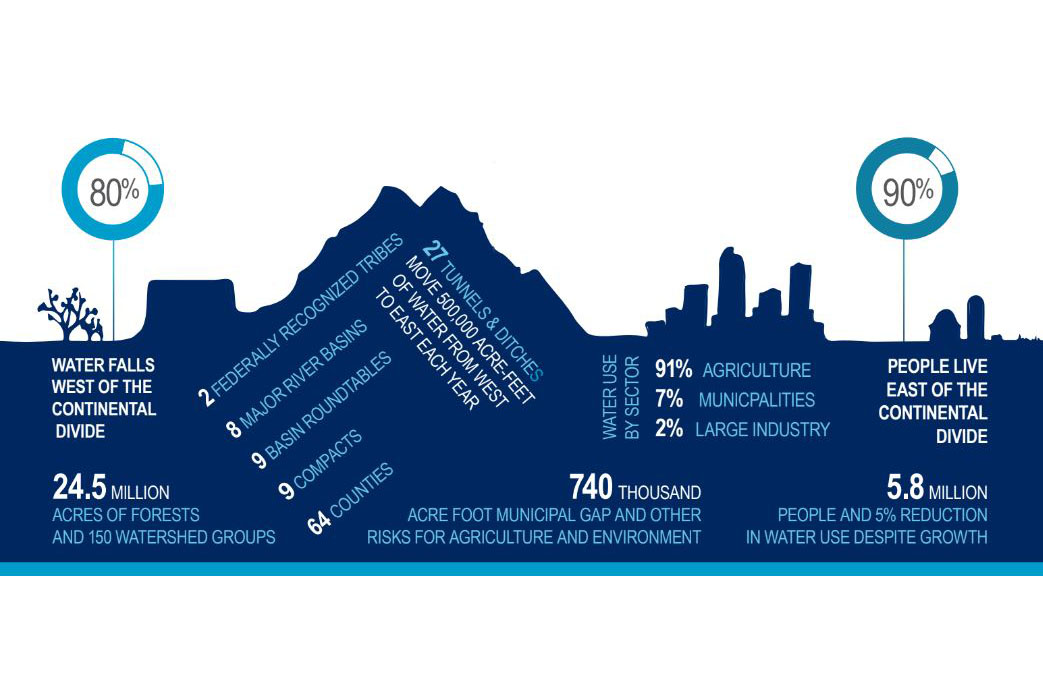A draft of the updated Colorado Water Plan was released Wednesday, June 30, and is available for public review online and at each Colorado county seat. Public comments will be accepted through Sept. 30.
According to the Colorado Water Conservation Board website, CWCB staff will record public comments through various events, including the next Upper Arkansas Water Conservancy District board meeting in Salida July 14. The CWCB will also hold four virtual listening sessions. Each session will address one of the Water Plan’s four focus areas:
- Thriving Watersheds: 4-6 p.m. Wednesday, July 27 – Details.
- Resilient Planning: 4-6 p.m. Wednesday, August 10 – Details.
- Vibrant Communities: 4-6 p.m. Thursday, September 1 – Details.
- Robust Agriculture: 4-6 p.m. Wednesday, September 28 – Details.
After the public comment period ends, the CWCB expects the final 2023 Colorado Water Plan to be completed at the end of 2022 and adopted by the CWCB in early 2023.
First developed under the leadership of Gov. John Hickenlooper (now a U.S. senator), the Colorado Water Plan provides a framework for helping Colorado meet its water challenges through collaboration on water resource development and water conservation.
As stated on the CWCB website, “The plan includes a range of collaborative partner actions that stakeholders can advance through grant funding and local projects, as well as specific actions the Colorado Water Conservation Board and other agency partners will commit to in order to advance the plan.”
The Colorado Water Plan uses data and analytical tools to understand and address the state’s water issues, including adapting to aridification and climate change, embracing innovative ideas, and adopting new technology that will support accomplishing Colorado’s evolving water goals.
Colorado Water Plan grants support a range of multi-beneficial projects for things like water storage, water conservation, agricultural efficiency, water education, watershed health and outdoor recreation. The Colorado Water Plan addresses identified risks and challenges, including funding, supply, equity, climate change, land-use planning, storage, efficiency, education and forest health.








